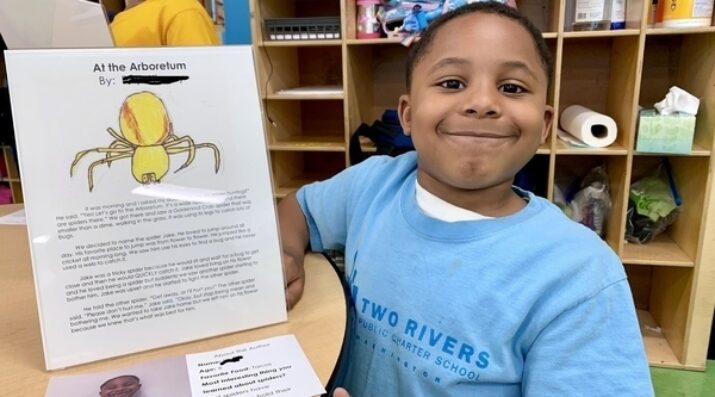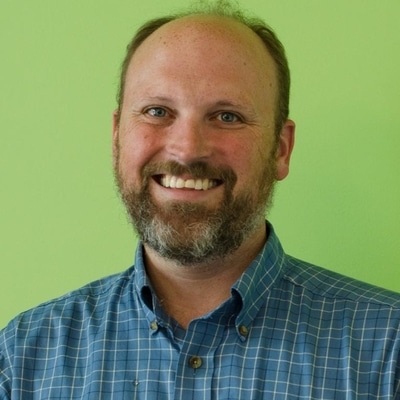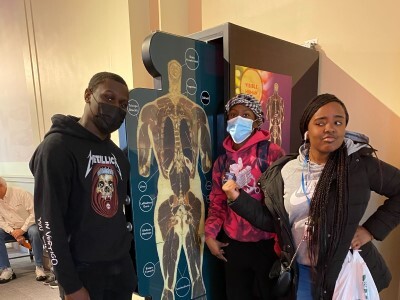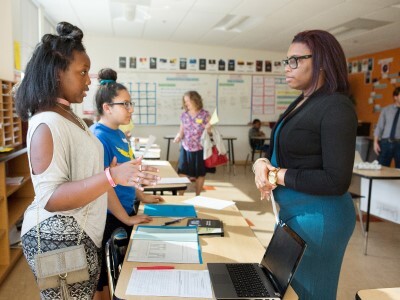Reimagining Assessment
Making Learning Public: Two Practices for Engaging and Empowering All Students
Topics

Educators are rethinking the purposes, forms, and nature of assessment. Beyond testing mastery of traditional content knowledge—an essential task, but not nearly sufficient—educators are designing assessment for learning as an integral part of the learning process.
With a community display of learning in expedition showcases and more personalized sharing during student-led conferences, Two Rivers students are more deeply engaged and empowered to lead their own education.
Over the last month, I have had two opportunities to work with students as they have made their learning public at Two Rivers Public Charter School in Washington, D.C. First, at the end of May, students shared their learning at our expedition showcases, the culmination of their 12-week projects. Second, our students led their final conferences with their families at the end of the school year in mid-June. Both of these practices are key to the experience that students have at Two Rivers. Making learning public provides an authentic audience for learning, more deeply engages students, and empowers them to take an active role in their learning journey.
Both of these practices take time and intentional planning to implement well, but either can be easily adapted to the context of other schools. The key is understanding not only how to implement structures for students to share work but also to understand why we are having them share in the first place. Our showcases of student learning and our student-led conferences serve complementary but different purposes in the life of our students and our community. Examples from both practices are illustrative.
Expedition Showcase
As an EL Education school, one of the most salient features of Two Rivers' approach to education is project-based learning. Our projects, which we call learning expeditions, are 10-12-week in-depth studies of a compelling topic to solve an authentic problem. For example, 1st grade students recently completed an expedition centered around the following question:
Many people kill spiders because they think spiders are dangerous, scary, or gross! How can we change what people think about spiders?
Through the course of the study, the 1st graders read literature with spiders and surveyed members of our community. They found that spiders are often portrayed as bad in fiction and many people are scared of spiders. To combat the misconceptions that many people have about these fascinating arachnids, the 1st graders conducted research on spiders, wrote realistic fiction stories, and drew scientifically accurate portraits of spiders.

A first grader shares his story about spiders during an in-school expedition showcase of learning. (Courtesy of Two Rivers Public Charter School)
In two separate showcases, students shared their learning to authentic audiences. During our in-school showcase, the 1st graders hosted other classes in the school to teach them the "truth" about spiders. Then during an evening community showcase, the students shared their learning with their families. In both cases, the class did a short presentation that framed the problem that they were trying to solve, how they learned about spiders, and their solution to the problem. They then shared the products they produced.
These showcases of learning are presented at every grade level and serve several purposes. First, learning is joyful at Two Rivers! Completing a project is a reason to share and celebrate. By hosting showcases where every student across the school is involved in sharing their learning at the same time in a very public format, we build a community that makes learning exciting.
Second, the sharing that students do during showcase is collaborative. One of our core values at Two Rivers is that we learn better together. Whole-class presentations of student learning highlight the collaborative nature of learning. Even when the products that students produce might be individual pieces, they are framed as part of a greater whole, such as when all of the individual spider stories are collected together to tell a new story about spiders' role in our environment.
Finally, our showcases of learning provide a reason for learning and thus deeper engagement for our students. Knowing that they will be presenting their work to other classes and their peers provides a meaningful reason to get the work right.
Student-Led Conferences
While expedition showcases are about highlighting the work that students produce in collaboration and is public to a larger audience, student-led conferences are a practice that focuses on the individual learner and sharing her learning with the adults in her life that can help her reach her goals.
During a recent student-led conference, I watched as a 5th grade student welcomed his parents to the meeting and proceeded to lead them through his learning this past year. Through the course of the meeting, his teacher sat on the side observing. She was available to answer questions about curriculum or from her perspective, but the student was in charge. Building off of a Google Slide deck, the student shared specific pieces of work, his grades, and assessment data to share how he has been doing in math, in literacy, in his expedition work, and in his scholarly habits (the character habits that we focus on at Two Rivers). He then shared his goals for middle school. He highlighted some ways that he was going to work on those goals and some ways that his parents and teachers might help him as well.
Because of the highly individualized and personal nature of student-led conferences, students and teachers are able to tailor the experience to meet students right where they are in their learning journey and put the student truly at the center of their learning. Student-led conferences empower students to own both what they have learned and where they want to go.
Utilizing both a communal display of learning in expedition showcases and more personalized sharing of learning with families during student-led conferences, our students are more deeply engaged in their learning and empowered to become leaders of their own education.




